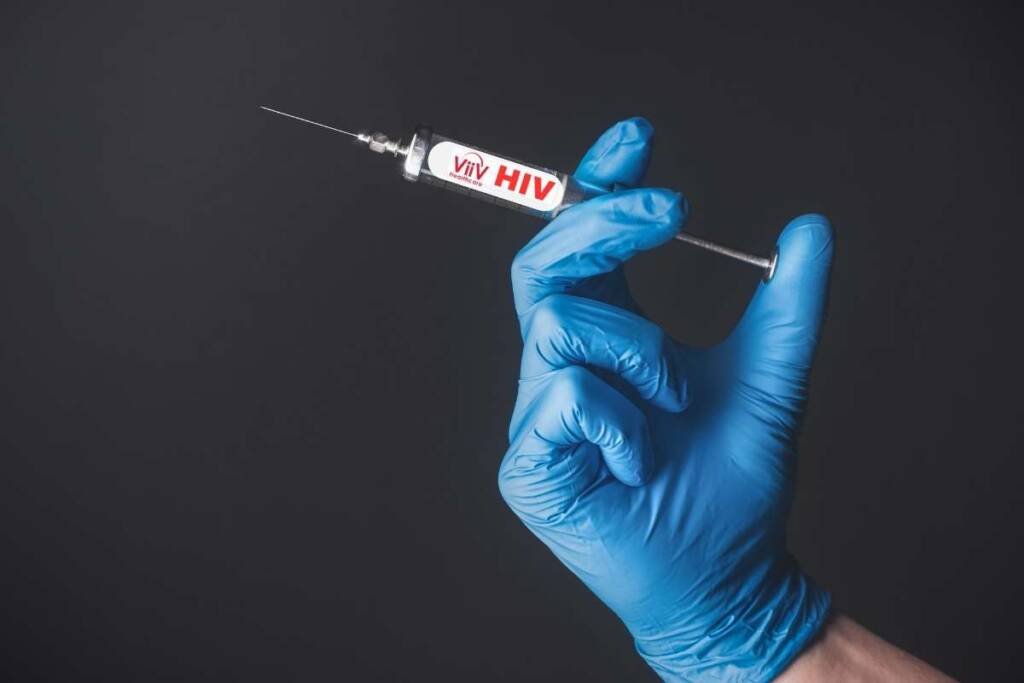When ViiV Healthcare and Johnson & Johnson introduced their once-monthly injectable HIV treatment Cabenuva in 2021, they anticipated that patients would find it preferable to taking daily tablets. Now, after a direct head-to-head comparison between Cabenuva (cabotegravir/rilpivirine) and Gilead Sciences’ widely prescribed oral HIV regimen Biktarvy (bictegravir/emtricitabine/tenofovir alafenamide), they have solid evidence supporting this belief.
Data from the Phase IIIb SOLAR study, presented at the IAS 2023 conference in Brisbane, Australia, followed patients who switched from Biktarvy to Cabenuva over 12 months. The study found that an impressive 90% of these patients preferred the convenience of the once-monthly injection.
Earlier 12-month findings from the same study, presented at CROI 2023 in February, had already shown that Cabenuva was equally effective as Biktarvy in suppressing HIV.
At the beginning of the SOLAR study, nearly half (47%) of the patients on Biktarvy admitted to facing challenges in remembering to take their daily treatment, and they felt burdened by the daily reminder of their HIV status.
Switching to Cabenuva led to improved adherence, with 83% and 61% of participants, respectively, preferring the long-acting treatment because it was more convenient or because it relieved them from the burden of thinking about their HIV status every day.
Additionally, over half (59%) cited not having to worry about others seeing their pills as a significant reason for preferring the injections.
ViiV, majority-owned by GSK, considers Cabenuva a key element in its strategy to boost HIV sales over the next five years, alongside long-acting injectable Apretude (cabotegravir) as an alternative to Gilead’s oral therapies for HIV pre-exposure prophylaxis (PrEP) and its two-drug regimen Dovato (dolutegravir/lamivudine).
Despite Cabenuva’s increased convenience, it hasn’t made a significant impact on Gilead’s Biktarvy sales, which saw a 24% year-on-year increase to $2.7 billion in the first quarter of 2023. In the same period, Cabenuva sales reached $183 million, up from around $49 million a year earlier.
GSK reported strong patient demand for Cabenuva in its first-quarter update, with high market access and reimbursement levels in the US and Europe following a recent approval for a new dosing regimen that eliminated the need for an oral lead-in period. In the US, a direct-to-consumer (DTC) advertising campaign has been launched to support its rollout.
According to analysts at ODDO BHF, ViiV’s cabotegravir franchise, driven by Cabenuva and Apretude, could contribute around £3 billion ($2.6 billion) of the total HIV sales of £7 billion for ViiV in 2026, although GSK’s estimates for peak sales are more conservative at around £2 billion.
On July 24, 2023, ViiV Healthcare welcomed a positive opinion by the European Medicines Agency’s (EMA) Committee for Medicinal Products for Human Use (CHMP) recommending marketing authorisation for cabotegravir long-acting (LA) injectable and tablets for HIV prevention.
“The expansion of prevention options is critical if we are to end the HIV epidemic. Long-acting options have the potential to play an important role in reducing challenges such as inconsistent adherence to taking daily pills, and stigma associated with oral PrEP use that can be faced by people who could benefit from PrEP. At ViiV Healthcare we are at the forefront of cutting-edge science, developing innovative solutions to address the biggest unmet needs in HIV prevention. With the CHMP positive opinion, we are hopeful that people in Europe will soon be able to benefit from greater choice”.
– Kimberly Smith, M.D., MPH, Head of Research & Development at ViiV Healthcare
Cabotegravir LA for PrEP is currently approved for use in the US, Australia, Zimbabwe, South Africa, Malawi, Botswana, and Brazil as Apretude. Submission to other regulatory agencies is on-going.
Gilead is also eyeing the long-acting injectable market and gained FDA approval for twice-yearly therapy Sunlenca (lenacapavir) in December, initially intended as an add-on to oral therapy for people with resistant HIV. The company plans to extend the use of lenacapavir into additional and larger patient settings, including the general HIV-positive population, as well as for PrEP.
Meanwhile, ViiV is working on a self-injectable formulation of its drug and exploring new versions that could offer twice-yearly dosing.





























